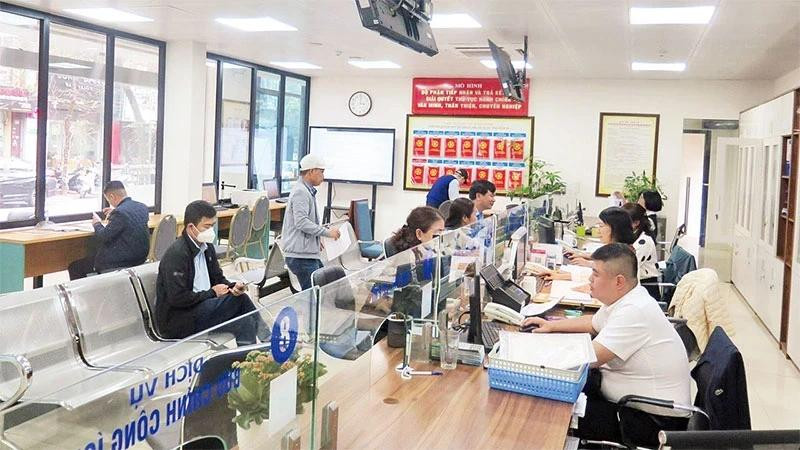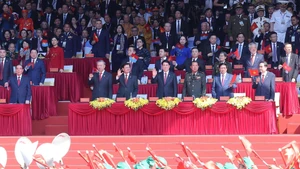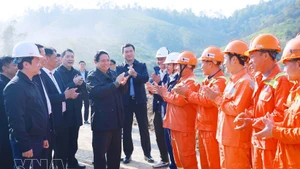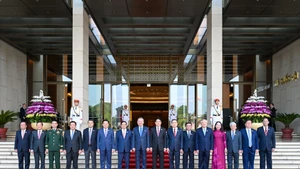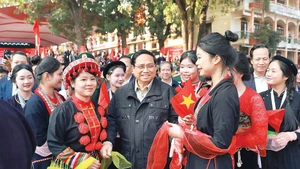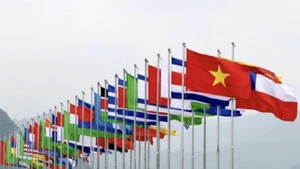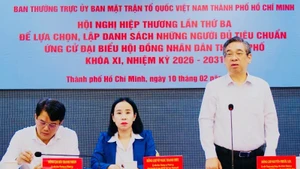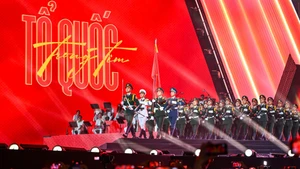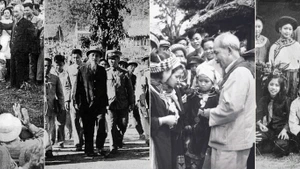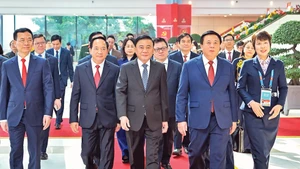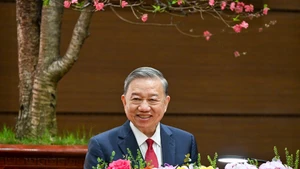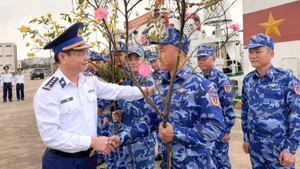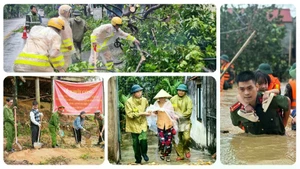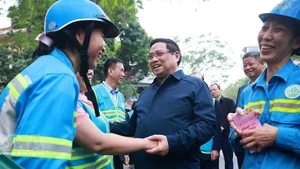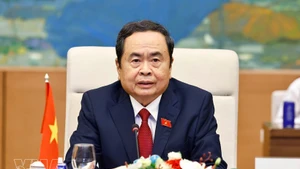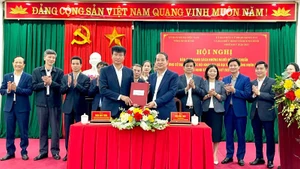Affirming that in his article titled “Continuing to strongly innovate the Party’s leadership and ruling methods – an urgent need of the new revolutionary period”, Party General Secretary To Lam stressed four key tasks that must be implemented as the country enters a new historical juncture. He also emphasised the urgent need to reform the leadership methodology and improve the leadership capacity and the ruling capacity to continue leading the nation to strongly move forward.
Party committees and organisations at all leveles exercise leadership by formulating guidelines, strategies, and policy orientations while directing the institutionalisation and concretisation of the Party’s viewpoints, policies, and directions into state laws, programmes, and action plans implemented throughout society. When evaluating Party-building efforts and the implementation of the Party Charter, the 13th National Party Congress documents highlight one key lesson on promptly summarising practical experiences and developing theories to foster creative innovation while resisting conservatism and stagnation. At the same time, there is a requirement to improve the ability to forecast and formulate guidelines and policies of the Party committees at all levels and organisations.
“The reality of Doi Moi (Renewal) is always moving and developing, requiring constant reforms in the Party's leadership and ruling methods on the basis of firmly upholding the Party's principles”. This assertion by General Secretary To Lam has been vividly reflected in practice as sectors and agencies from the central to grassroots levels have been urgently and resolutely implementing measures to resolve bottlenecks. This effort aims to institutionalise the Party’s policies and directions while continuing to promote the revolution of streamlining the organisational apparatus. The goal is to refine, enhance, and improve the effectiveness, efficiency, and performance of the political system to meet the requirements of national development in the new era.
The Party Central Committee, the Politburo, the Secretariat, Party committees at all levels, and the leaders of localities and units have demonstrated a high level of unity and decisiveness in implementing solutions. Their efforts are aligned with the specific objectives set for the 2021–2030 period as outlined in Resolution No.18-NQ/TW (issued on October 25, 2017), which addresses the continued reform and restructuring of the political system’s organisational apparatus to make it more streamlined, effective, and efficient.
The restructuring and streamlining of the apparatus have been being carried out in tandem with research and the refinement of the overall model of the political system. This includes improving institutional mechanisms and the operational framework of agencies and units within the system under the Party’s leadership. Clearly defining the Party’s leadership methods and the leadership mechanisms of Party committees from the central to the grassroots level ensures that after restructuring and streamlining, agencies, units, and localities have clearly defined functions, duties, and authorities. This ensures effective and efficient state governance while enhancing the quality of supervision and social criticism, as well as promoting the people’s role in governance. Party organisations and committees at all levels have been being strengthened, upgraded, and elevated, contributing to the development of a clean and strong Party and political system.
Streamlining the political system’s apparatus not only reduces the financial burden on the state budget but also enhances the quality of human resources and the ranks of officials, civil servants, and public employees. It creates mechanisms to attract talents and provides a foundation for renewing production forces, production relations, and increasing labour productivity. The principle of "the Party leads, the State governs, and the people are the masters" remains the consistent operational mechanism of Vietnam’s political system.
The decision to restructure administrative units by eliminating intermediate administrative levels, while increasing the authority and responsibility of grassroots levels under the principle of "local decisions, local actions, and local accountability" will help prevent Party committees and organisations from overstepping their roles and taking over administrative responsibilities. It also reduces instances of responsibility-shifting, which can lead to negative behaviours and bureaucratic hurdles. Eliminating intermediate levels will encourage officials, Party members, civil servants, and public employees to take a proactive and innovative approach, reducing redundancy and inefficiencies. Cutting intermediate administrative levels, expanding development spaces, and strengthening local resources will also create pressure for self-innovation and serve as a model for leadership, especially for key officials.
Supplementing, refining, and innovatqing the Party’s leadership methods involve enhancing the effectiveness, efficiency, and performance of the streamlined political system while simultaneously issuing mechanisms and policies to strengthen public oversight of Party organisations, officials, and Party members, particularly key leaders. Restructuring and streamlining the apparatus, combined with eliminating intermediate administrative levels through effective decentralisation and power delegation mechanisms, will be a crucial solution for bringing the Party closer to the people, thereby vividly and fully realising the mechanism of "the Party leads, the State governs, and the people are the masters".
